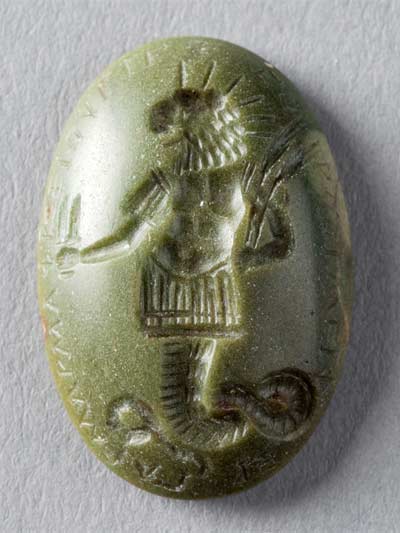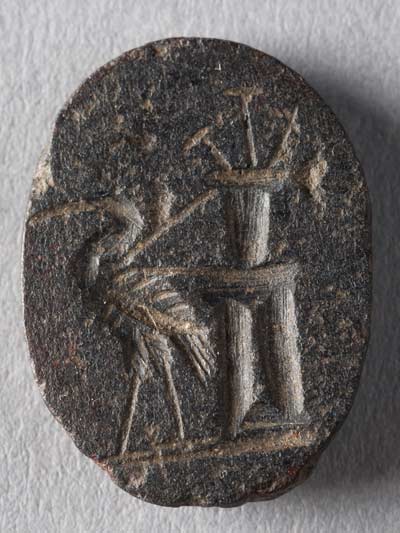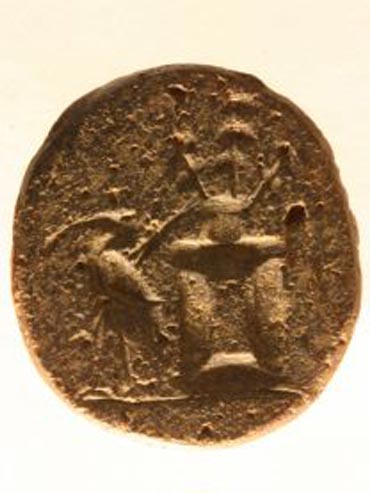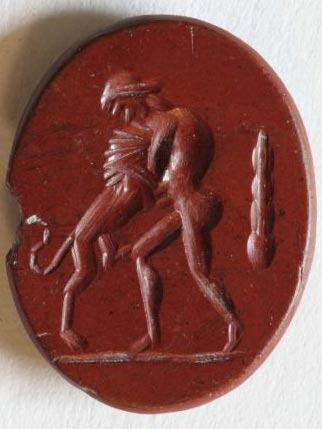The lion-headed serpent Chnoubis was responsible for healing the pains and diseases of the stomach. The Greek doctor Galen acknowledges the old belief that stones with the design of the radiate serpent were worn as amulets to benefit the stomach and esophagus (On the Mixtures and Powers of Simple Drugs 9.2.19). In addition, stomach amulets could also display a long-billed bird, an ibis, tied by the neck to a pot holding three flowers and placed on top of an altar. The ibis is conceived as a means to eliminate the ailments of the stomach, and the offering on the altar confirms the status of the ibis as an animal sacred to the Egyptian god Thoth. Moreover, on the reverse is the Greek formula πέπτε πέπτε πέπτε, or πέσσε πέσσε πέσσε, which means “digest.” The fight against stomach ache is also symbolized by Heracles fighting a lion.





